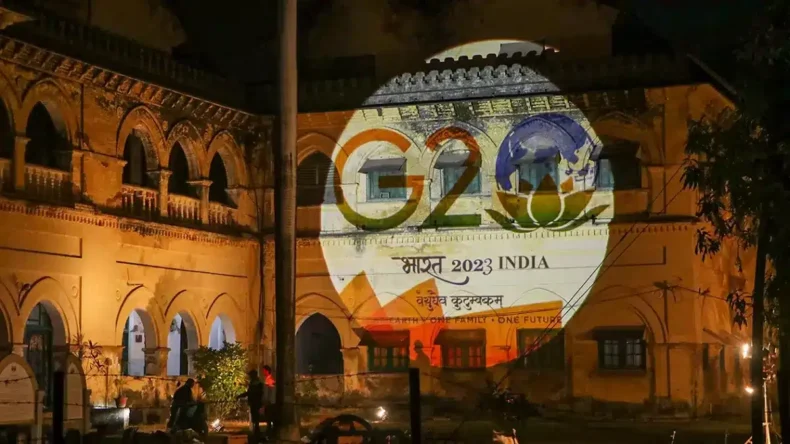Moving away from the traditional goals and pattern of setting deadlines, which has not yielded many results, India along with China are working towards roadmaps for countries intending to cut down their carbon emissions. This will allow other countries within and outside of G20 to choose their models and fall the initiatives of the two countries to reach better results.
Table of Contents
India’s plan of multiple pathways
G20, now being presided over by the Prime Minister of India, Shri Narendra Modi is currently taking place in India. According to Indian officials, the country under the leadership of Modi is dedicated to introducing the phase called ‘multiple energy pathways’. It is being planned to be introduced in a communique and to be released at the G20 group summit in September this year. The initiative has been widely supported by different nations, particularly China, which has been working towards decreasing its carbon footprint and South Africa, which is a major receiver of the negative consequences of rising carbon emissions.

Source: PTI
Multiple pathways will allow different nations to make a choice in their use of resources, including the use of coal. This can be simultaneously followed while the nations work on their individual plans to reach the target of net zero emissions.
In the Energy Transitions Working Group (ETWG) meeting of the G20 Summit held in the state of Gujarat in India, the country had opposed a deadline proposed by rich nations to put an end to the use of fossil fuels. According to an official at the meeting, according to the new data released by the Indian government, coal accounts for three-fourths of electricity generation in India. However, New Delhi has long defended its use of fuel since the per capita emissions of carbon are much lesser compared to other countries.
China’s position
In the ETWG meeting last month, China supported the call of India, suggesting that the proposed deadline by the rich states cannot yield results as it is impossible to give a single deadline to all the nations at once. This is primarily because of the long history of underdevelopment as well as due to the fact that one cannot expect nations to switch to resources other than fossil fuels and get the optimum results.
While both Indian and Chinese delegates did not comment on the proceedings of the meeting, it is interesting to note that both India and China are the leading consumers of coal in the world. The two nations are also the most populous countries in the world, with heavy dependence on coal.
Paris Agreement, 2015
The Western nations had been repeatedly asking India to end the use of coal. It is the first time that India has used the term ‘multiple pathways’ as a way to end or reduce carbon emissions in its plan. According to another official who stays anonymous, the term conforms to the 2015 Paris Agreement on climate change. While the agreement focuses on ‘common but differential responsibilities’ for the nation according to the ‘national circumstances’, the proposal by the Western nations often tends to ignore this point. The official confirms the conformity of India’s plan to this section of the Paris Agreement.
Towards the run of the G20 summit
The G7 Climate ministers had agreed last month to “accelerate the phase-out of unabated fossil fuels so as to achieve net zero in energy systems by 2050 at the latest”.
India, in the last climate change deliberations in Egypt in November last year, had argued for ‘phasing out’ of every fossil fuel, which must include natural gas and should not only be limited to the use of coal.

In March 2024, the European Union agreed to promote the phasing out of fossil fuels ahead of the COP28 summit in Dubai in November.
New Delhi will be presiding over the G20 summit in September later this year with President Joe Bidden and Xi Jinping as its members. Currently, officials of these countries are meeting with their counterparts to discuss and decide their proposition on the issue.
G20
G20 is an inter-governmental group comprising 19 nations including Russia, China, India, Brazil, Australia and Saudi Arabia, among other nations.
Sources: G20
The group delegates on major international issues such as global economy, climate change mitigations, and sustainable development among others.













